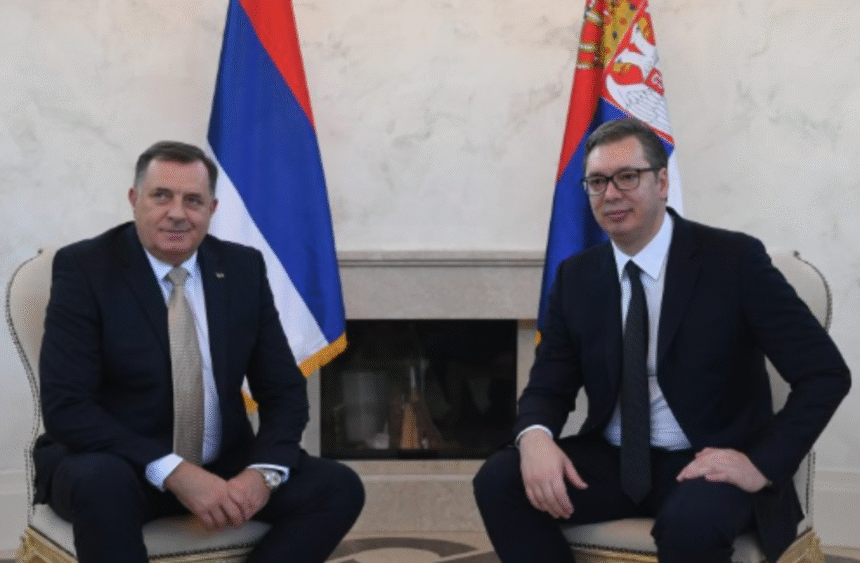Despite Western sanctions and growing political isolation, the leaders of Bosnia and Herzegovina’s Republika Srpska entity and Serbia Milorad Dodik and Aleksandar Vučić continue to maintain close ties with Russian President Vladimir Putin.
Analysts argue that these meetings are more about sending a message to the West than obtaining real support from Moscow.
“What they seek is symbolic backing from Putin to intimidate Europeans and to signal that it is in their interest not to apply more pressure on Vučić or Dodik,” said Toby Vogel of the Berlin-based Council for Democratization Policy.
Dodik’s Legal Troubles and Moscow Agenda
Dodik, who recently lost his mandate as president of Republika Srpska after a final court ruling, told Russian media Sputnik that he would “soon” travel to Russia. In October, he expects to meet with Putin to request that Moscow veto the extension of the EUFOR Althea peacekeeping mission in Bosnia at the UN Security Council.
Vučić Between Beijing and Moscow
Meanwhile, Serbian President Vučić is heading to Beijing this week to meet with Chinese leader Xi Jinping and later with Putin. His trip comes at a time when mass protests in Serbia — ongoing for ten months — demand accountability for the deaths of 16 people following the collapse of a concrete shelter at the Novi Sad railway station.
Analyst Vogel noted that Vučić and Dodik’s frequent meetings with Putin are intended to provoke Brussels and London, not secure Moscow’s backing. He emphasized that the EU has been “too weak” in criticizing Vučić’s handling of protests in Serbia and warned that no trip to Moscow or Beijing would change Vučić’s fragile political standing.
Russian Influence Questioned
Sarajevo-based political scientist Adnan Huskić questioned what Russian support in the Balkans really means:
“You are surrounded by NATO member states, and the U.S. remains present. I truly don’t see how Russian help is of any real use here.”
He described Dodik’s outreach to Moscow as political theater with little concrete impact, stressing that global attention is unlikely to shift toward Bosnia in the current geopolitical climate.
From Banja Luka, analyst Tanja Topić added that Dodik’s pivot to Russia reflects his disappointment with expectations from the Trump administration and his attempt to survive politically after the court ruling. She argued that Dodik’s rhetoric about potential independence for Republika Srpska serves mainly domestic political purposes.
History of Meetings with Putin
Since Russia’s invasion of Ukraine in February 2022, Dodik has met Putin eight times, most recently in April and again during Moscow’s May 9 military parade, which Western governments condemned as war propaganda.
By contrast, Vučić has met Putin only once in person since the invasion — also at the May parade in Moscow, after more than three years without a bilateral meeting. Still, Vučić has maintained sporadic communication, including phone calls and a meeting in Beijing in October 2023.
Despite Serbia’s EU candidate status, Belgrade has refused to join sanctions against Russia, continuing to rely on Moscow for energy supplies — a dependency Vučić publicly acknowledged during commemorations in October 2024.







